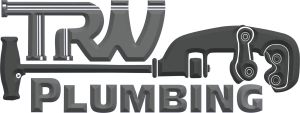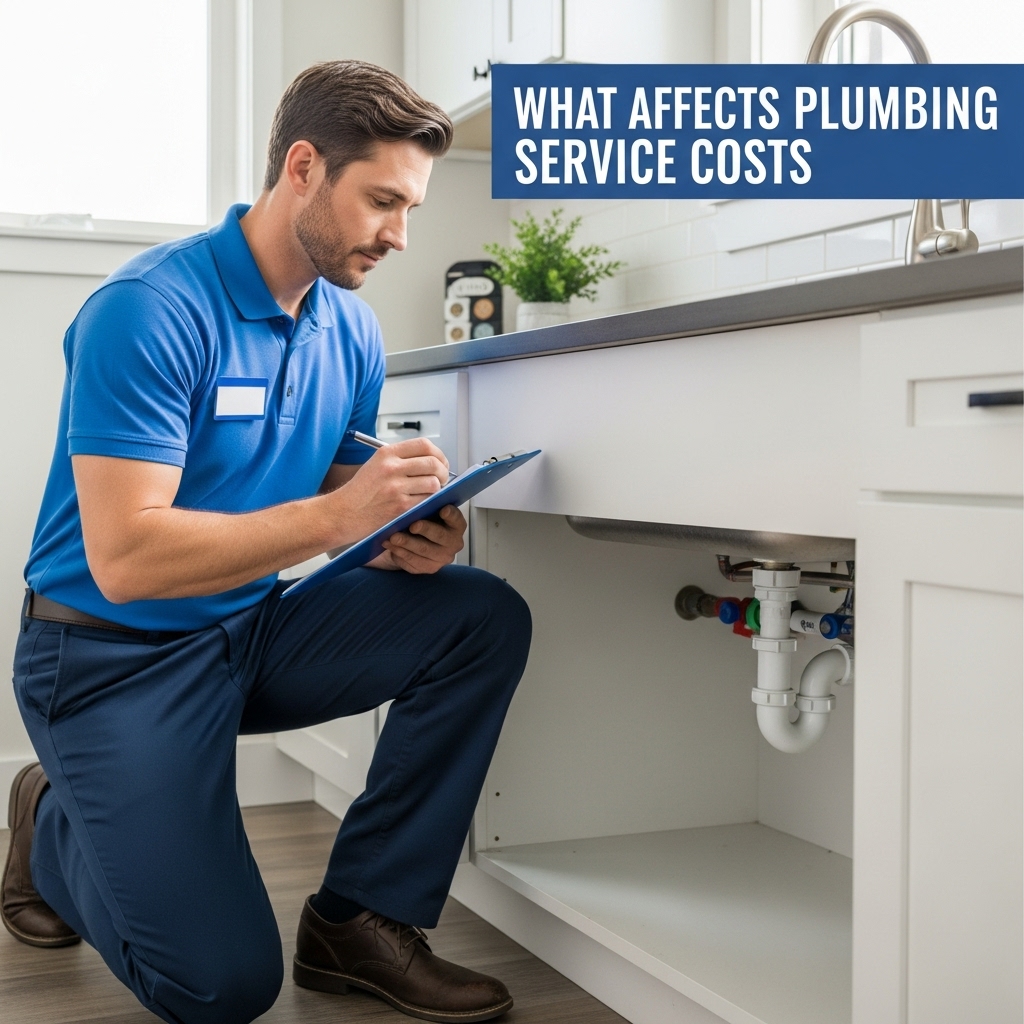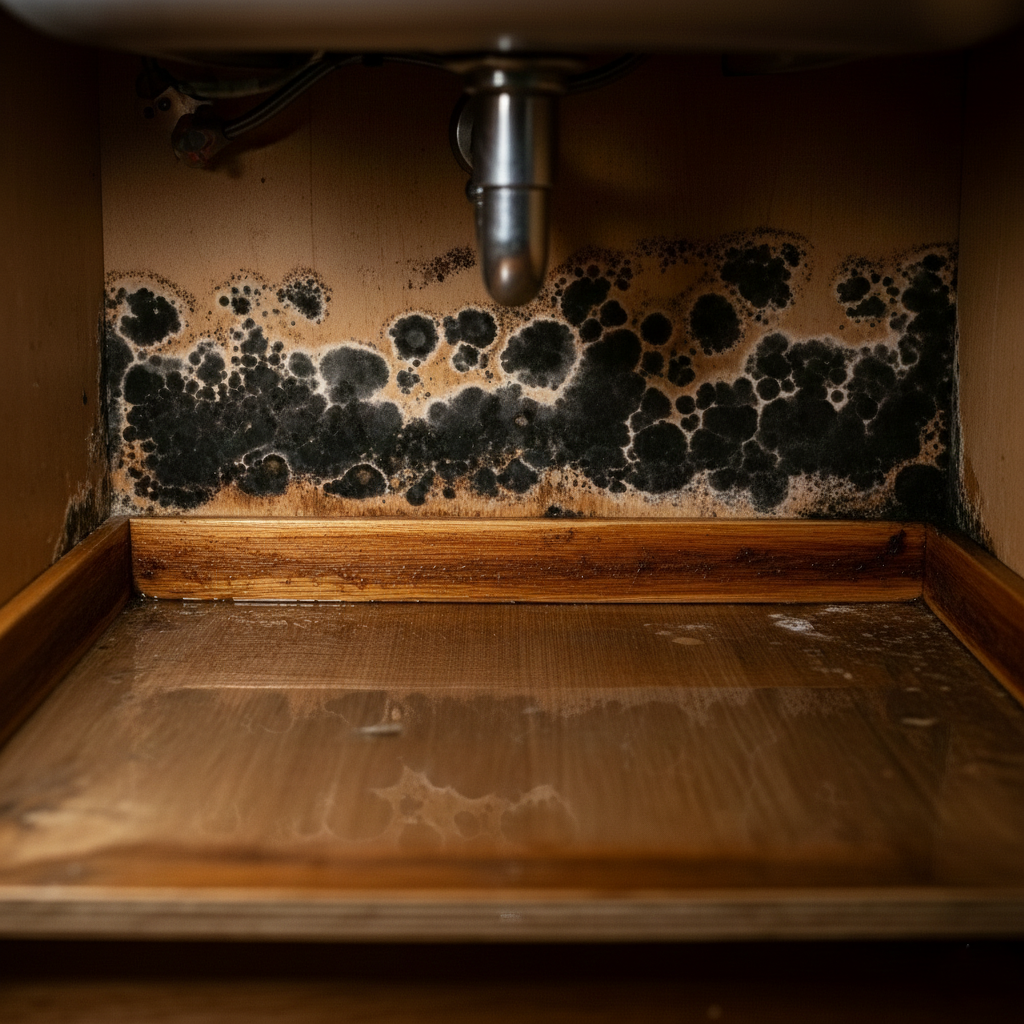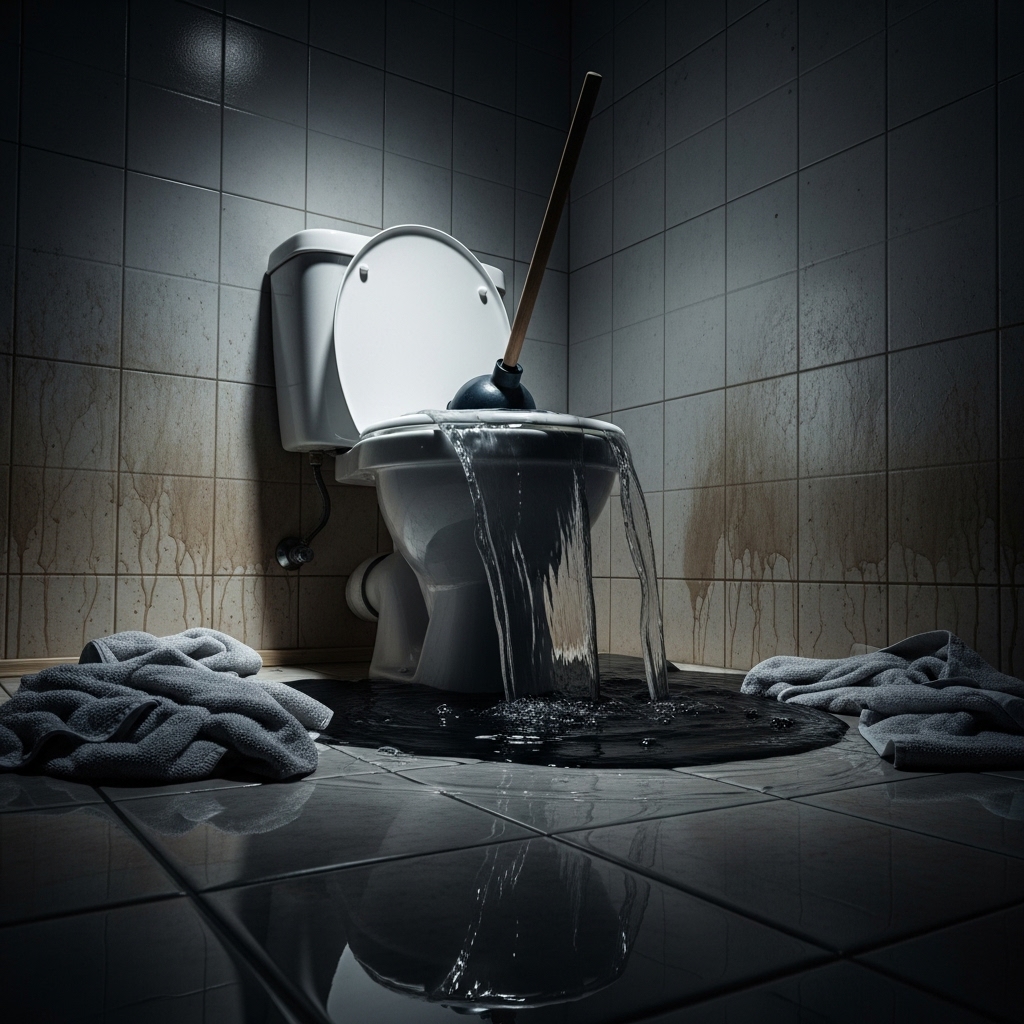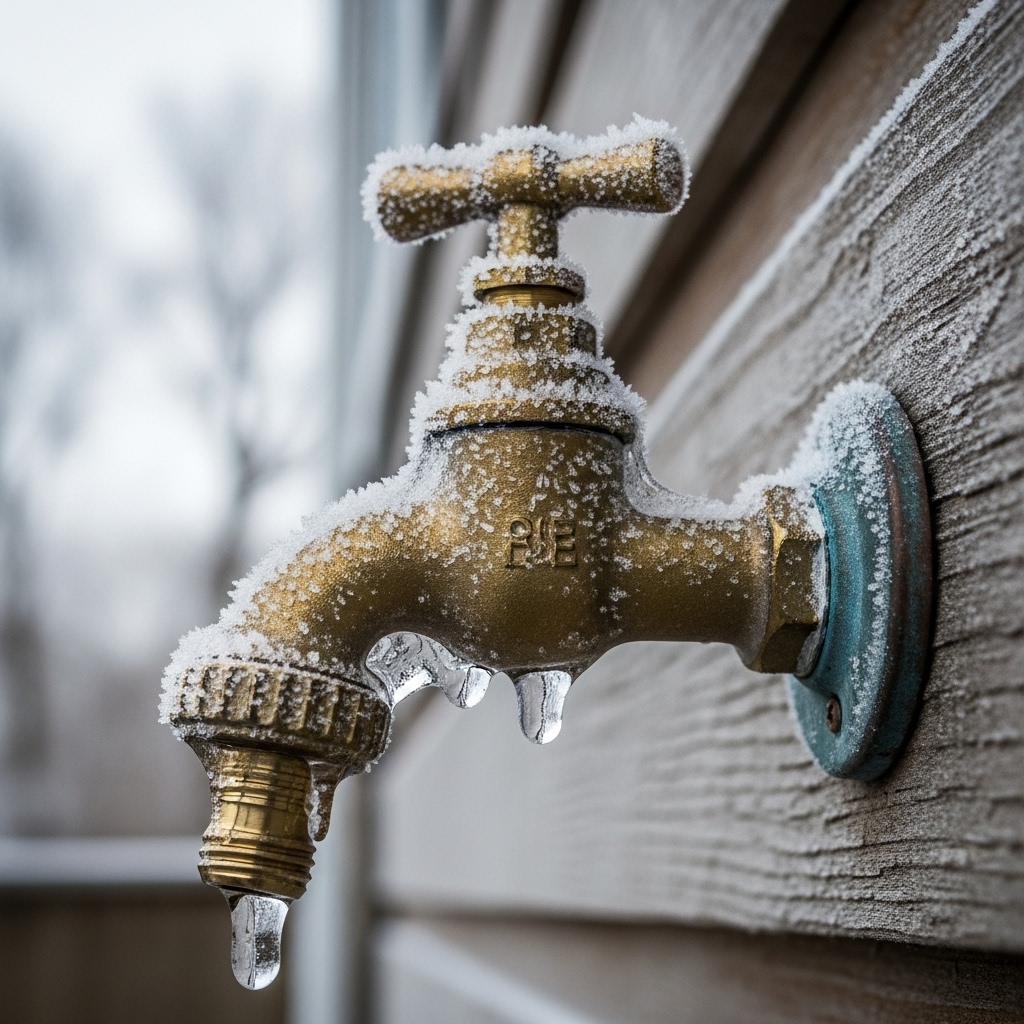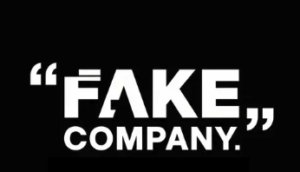TL;DR:
Plumbing service costs in Twin Falls vary based on the type of repair, urgency, parts required, labor time, and local water quality issues. Homeowners can avoid unexpected bills by understanding these pricing factors, asking the right questions, and choosing licensed plumbers who offer transparent estimates.
When your toilet won’t stop running or you notice water pooling under the sink, one question immediately comes to mind: “How much is this going to cost me?” It’s a fair question—and one that deserves a straightforward answer.
The truth is, plumbing costs in Twin Falls can vary quite a bit. But that doesn’t mean you’re stuck playing guessing games with your budget. Understanding what drives plumbing prices helps you make informed decisions, avoid unnecessary expenses, and know exactly what you’re paying for before any work begins.
Let’s break down the real factors that affect plumbing service costs in our area—and how you can stay in control of your plumbing budget.
Why Plumbing Costs Vary So Much in Twin Falls
If you’ve ever gotten wildly different quotes from different plumbers, you’re not alone. Plumbing isn’t like buying a gallon of milk where the price is fixed. It’s more like car repairs—the final cost depends on what’s actually wrong, how complicated the fix is, and what parts are needed.
Here in Twin Falls, we have some unique factors that influence plumbing costs:
Our Water Is Seriously Hard
Twin Falls water comes from the Snake River Plain aquifer, and it’s loaded with minerals. According to the City of Twin Falls water quality data, our water measures 15-20 grains per gallon (GPG)—that’s in the “very hard” category. To put that in perspective, water is considered hard at just 7 GPG. This mineral-rich water causes scale buildup that can shorten the life of your water heater, clog pipes, and create issues that require more frequent maintenance than in other parts of the country.
Our Homes Have History
Many Twin Falls homes were built decades ago, which means older plumbing systems. Older pipes, fixtures, and layouts can make repairs more time-consuming and sometimes require specialized parts that aren’t as readily available.
Idaho Winters Are No Joke
When temperatures drop into the single digits (as they often do here), frozen and burst pipes become a real concern. Pipes in crawl spaces, basements, and exterior walls are especially vulnerable. According to water infrastructure experts, keeping your home at least 65°F during winter is critical to preventing costly freeze damage.
Seasonal Agricultural Activity
Twin Falls is surrounded by farmland, and during irrigation season, sediment levels in our groundwater can increase. This affects water quality and can contribute to additional wear on plumbing systems.
The bottom line? Homeowners often expect flat-rate pricing, but plumbing is inherently variable. The good news is that once you understand the factors at play, costs start to make a lot more sense.
The 6 Biggest Factors That Affect Plumbing Service Costs
Let’s get into the specifics. Here are the six key things that determine what you’ll pay for plumbing services in Twin Falls.
1. Type of Plumbing Issue (The #1 Driver of Plumbing Service Costs)
Not all plumbing problems are created equal. A simple clogged drain is a quick fix, while a full sewer line backup requires specialized equipment, more labor, and potentially excavation work.
Common issues and their complexity:
- Clogged drains: Usually straightforward, especially if the blockage is near the surface
- Leaky faucets: Quick fix for a dripping faucet, but if the valve seat is corroded, it gets more involved
- Water heater problems: Can range from a simple pilot light relight to full tank replacement
- Sewer line issues: Often the most expensive due to the equipment and labor required
Twin Falls’ hard water adds another layer here. Mineral buildup is a common culprit behind clogs, reduced water pressure, and water heater inefficiency. In fact, hard water can reduce water heater efficiency by up to 30% due to scale accumulation on heating elements.
2. Emergency vs. Standard Scheduling
There’s a reason emergency plumbing costs more—and it’s not just because plumbers can charge it. Emergency service means a plumber is dropping everything (often during off-hours, weekends, or holidays) to help you immediately.
Here’s the typical cost difference:
- Standard service call: Usually includes a service fee ($100-$250) that covers the trip and diagnostic time
- Emergency service: Expect rates to be 1.5 to 3 times higher, plus an additional trip charge that can range from $100 to $350
If it’s 2 a.m. and you have water gushing from a burst pipe, emergency service is worth every penny. But if your toilet has been running for a week and you just now decided to call, scheduling during normal business hours will save you significant money.
Pro tip: If you’re unsure whether your issue is truly an emergency, call and describe the problem. A good plumber will tell you honestly whether it can wait until morning.
3. Parts & Materials Needed
Sometimes a repair is mostly labor. Other times, you need a new part—and that part might cost $20 or $200 depending on what it is and where it comes from.
Factors that affect parts costs:
- Age of your plumbing: Older homes (especially those built before the 1990s) may have fixtures or pipe types that require special-order parts
- Brand and quality: A basic faucet cartridge costs less than a high-end brand replacement
- Availability: Common parts are cheaper and faster to get; specialty items may need to be ordered
In older Twin Falls neighborhoods, it’s not uncommon to encounter galvanized pipes or outdated fixtures that require more creative solutions—or complete replacements.
4. Labor Time & Complexity
Plumbing labor rates in Idaho typically range from $45 to $200 per hour, depending on the plumber’s experience and certification level. A journeyman plumber (like Trevor Williams at TRW Plumbing, who has 24 years of experience) brings expertise that can save you time and prevent costly mistakes.
What affects labor time:
- Diagnosis: Some issues are immediately obvious; others require investigation
- Access: Is the problem easy to reach, or does it require removing walls, cabinets, or crawling through tight spaces?
- Permit requirements: Some jobs require permits and inspections, adding time to the project
Complex jobs—like repiping a section of your home or installing a new water heater—naturally take longer and cost more. But skilled plumbers work efficiently and get it right the first time, which saves you money in the long run.
5. Home Accessibility & Layout
Your home’s layout and the location of the plumbing problem can significantly impact costs. Here’s why:
Crawl spaces: Many Twin Falls homes have crawl spaces rather than full basements. Working in a cramped, cold crawl space takes more time and sometimes requires specialized equipment.
Multi-story homes: Running new lines or accessing pipes on upper floors adds complexity.
Finished vs. unfinished areas: If a plumber needs to access pipes behind a finished wall, drywall removal and repair add to the bill.
This is one of those factors you can’t really control, but it’s helpful to understand why a seemingly simple fix might take longer (and cost more) than expected.
6. Water Quality Issues Unique to Magic Valley
We’ve mentioned Twin Falls’ hard water a few times, but it’s worth diving deeper because it directly affects your plumbing costs over time.
How hard water impacts your wallet:
- Shortened appliance lifespan: Hard water can cut the life of your dishwasher, washing machine, and water heater by 2-4 years
- Increased energy costs: Scale buildup on water heater elements increases energy use by up to 25%
- More frequent repairs: Mineral deposits clog aerators, showerheads, and valves, requiring more service calls
- Higher maintenance needs: Water heaters in Twin Falls need flushing more often than in areas with softer water
Many homeowners find that investing in a water softener system pays for itself within 18-24 months through reduced repairs and longer appliance life. It’s not just about water quality—it’s about protecting your plumbing investment.
Common Plumbing Repairs in Twin Falls (and Their Typical Price Ranges)
So what do things actually cost? While every job is unique, here are some general price ranges for common plumbing services. Keep in mind these are estimates based on average complexity—your actual cost could be higher or lower depending on the factors we’ve discussed.
Drain Cleaning
- Simple clog (sink or tub): $100-$250
- Main line cleaning: $300-$600
- Severe blockage requiring camera inspection: $500-$1,000+
Due to hard water in southern Idaho, mineral buildup is a common cause of slow drains. Regular maintenance can prevent more expensive emergency calls.
Leak Repair
- Dripping faucet: $100-$250
- Under-sink pipe leak: $150-$400
- Slab leak detection and repair: $500-$4,000+ (depending on location and severity)
Water Heater Services
- Flushing/maintenance: $100-$200
- Element replacement: $200-$400
- New tank water heater installation: $1,200-$3,500
- Tankless water heater installation: $2,500-$5,000
Water heaters in Twin Falls require flushing more frequently than in other regions—typically every 6-12 months instead of annually—due to our mineral-heavy water.
Toilet Repair or Replacement
- Simple repairs (flapper, fill valve): $100-$250
- Complete toilet replacement: $300-$800 (including removal and installation)
Fixture Installation
- Faucet installation: $150-$400
- Shower valve replacement: $300-$600
- Garbage disposal installation: $200-$500
Emergency Services
- After-hours service call: $200-$500+ (before repair costs)
- Burst pipe repair: $500-$2,000+ (depending on location and damage)
Remember, these ranges cover typical scenarios. Complications, accessibility issues, or the need for permits can affect the final price.
How Twin Falls Homeowners Can Avoid Surprise Plumbing Bills
Nobody likes surprises when it comes to home repair costs. Here’s how to stay in control of your plumbing expenses and avoid that sinking feeling when you see the final invoice.
Ask for a Written Estimate Before Work Begins
A reputable plumber should be able to give you a clear estimate after diagnosing the problem. This estimate should include:
- Labor costs and estimated time
- Parts and materials needed
- Any potential complications or additional costs
- Payment terms and warranty information
Don’t be shy about asking questions if something isn’t clear. A good plumber wants you to understand what you’re paying for.
Know What’s Covered in the Service Call Fee
Most plumbers charge a service call fee (also called a trip charge or diagnostic fee) that typically ranges from $100-$250. This usually covers:
- Travel time to your home
- Initial diagnosis and inspection
- A specified amount of labor time (often 30-60 minutes)
Some companies apply this fee toward the repair if you proceed with the work. Others charge it separately. Ask upfront so you know what to expect.
Choose Licensed & Insured Plumbers
This might seem obvious, but it’s worth emphasizing: always hire a licensed, bonded, and insured plumber. Here’s why:
Licensed plumbers:
- Have proven their knowledge through testing and certification
- Understand local plumbing codes and permit requirements
- Stay current on best practices and safety standards
Bonded and insured plumbers:
- Protect you from liability if something goes wrong
- Guarantee their work will be completed
- Give you recourse if there’s a problem
Trevor Williams at TRW Plumbing is a licensed Journeyman Plumber with 24 years of experience—the kind of expertise that gives you peace of mind that the job will be done right.
Keep Up with Preventative Maintenance
An ounce of prevention really is worth a pound of cure when it comes to plumbing. Regular maintenance can catch small issues before they become expensive emergencies.
Recommended maintenance for Twin Falls homes:
- Water heater flushing: Every 6-12 months (more frequently than other regions due to hard water)
- Drain cleaning: Annually or when you notice slow drainage
- Leak inspections: Check under sinks, around toilets, and visible pipes every few months
- Water softener maintenance: Monthly salt checks and annual professional service
- Winterization: Before temperatures drop, insulate exposed pipes and disconnect outdoor hoses
The cost of preventative maintenance is minimal compared to emergency repairs. A $150 water heater flush is a bargain compared to a $3,000 replacement.
When to Get a Second Opinion
Sometimes it makes sense to get a second opinion, especially for:
- Major repairs or replacements (over $1,000)
- When you’re told you need complete system replacement
- If the diagnosis doesn’t match the symptoms you’re experiencing
- When the quote seems unusually high or low compared to your research
That said, if you’ve found a plumber you trust who’s been fair and reliable in the past, there’s value in that relationship. Constantly price-shopping can sometimes cost you more in the long run if you end up with inexperienced or unreliable contractors.
When to Call TRW Plumbing (Your Local, Transparent Plumber)
At TRW Plumbing, we understand that calling a plumber can feel stressful. That’s why we’re committed to transparent pricing, honest communication, and doing the job right the first time.
What sets us apart:
- 24 years of experience serving southern Idaho communities
- Family-owned and operated by Trevor Williams, a third-generation plumber
- Licensed, bonded, and insured for your protection and peace of mind
- Upfront pricing with written estimates before work begins
- Local expertise in Twin Falls water quality issues and Idaho plumbing challenges
We serve Twin Falls, Boise, and Caldwell with the same commitment to quality our family has provided for generations. Every customer is our most important customer—that’s not just a saying, it’s how we do business.
Ready to schedule service? Call us at (208) 423-3276 or visit our website to request an appointment. We offer evening and weekend scheduling to work around your life.
Frequently Asked Questions About Plumbing Service Costs
What are typical plumbing service costs in Twin Falls?
Service call fees in Twin Falls typically range from $100-$250, which covers the trip to your home and initial diagnostic time. Hourly labor rates range from $45-$200 depending on the plumber’s experience and certification level. Simple repairs like fixing a dripping faucet might cost $100-$250 total, while more complex jobs like water heater replacement can range from $1,200-$5,000 depending on the type and installation requirements.
Why do emergency plumbing visits cost more in Idaho?
Emergency plumbing services cost more because plumbers are available outside regular business hours—nights, weekends, and holidays—when most people aren’t working. They’re also prioritizing your emergency over scheduled appointments. Emergency rates are typically 1.5 to 3 times normal rates, plus an additional trip charge of $100-$350. If your issue can wait until morning or the next business day, you’ll save significantly by scheduling standard service.
Can hard water in Twin Falls increase my plumbing repair costs?
Yes, absolutely. Twin Falls water measures 15-20 grains per gallon, which is considered “very hard.” This high mineral content causes scale buildup that reduces water heater efficiency by up to 30%, shortens appliance lifespans by 2-4 years, and leads to more frequent clogs and repairs. Many Twin Falls homeowners find that the cost of additional repairs and reduced appliance life adds up to $300-$800 annually. A water softener system can help protect your plumbing investment.
How do plumbers estimate repair costs?
Plumbers estimate costs based on several factors: the type and severity of the problem, parts and materials needed, labor time required, and complexity of access. After diagnosing the issue, a reputable plumber will provide a written estimate that breaks down these costs. The estimate should include labor hours, parts, any potential complications, and whether the final price could change if additional problems are discovered during the repair.
Is it cheaper to replace or repair a water heater in southern Idaho?
It depends on the age and condition of your current water heater. If your water heater is less than 8 years old and the issue is minor (like a faulty element or thermostat), repair usually makes more sense—typically costing $200-$500. However, if it’s over 10 years old, showing signs of rust or corrosion, or requires major repairs, replacement is often more cost-effective. Given Twin Falls’ hard water, water heaters here often need replacement sooner than the national average. A professional can assess your specific situation and recommend the most economical option.
How can I avoid surprise plumbing bills?
To avoid surprise bills, always ask for a written estimate before work begins. Make sure you understand what’s included in the service call fee and what additional costs might arise. Choose licensed and insured plumbers who offer transparent pricing. Keep up with preventative maintenance to catch issues early when they’re less expensive to fix. Finally, don’t be afraid to ask questions—a reputable plumber will gladly explain costs and help you understand your options.
Why do plumbers charge a service call fee?
A service call fee covers the plumber’s time and expenses to travel to your home, assess the problem, and provide a diagnosis. This fee typically includes 30-60 minutes of diagnostic time. It ensures that plumbers are compensated for their expertise even if you decide not to proceed with repairs. Many plumbing companies apply this fee toward the total repair cost if you move forward with the work. The service call fee is standard industry practice and helps plumbers operate sustainable businesses while providing prompt service.
Do plumbers offer free estimates in Twin Falls?
Practices vary by company. Some plumbers offer free estimates for larger projects like bathroom remodels or major installations where they can assess the work without extensive diagnostics. However, most charge a service call fee for repairs because diagnosing the problem requires their time and expertise. At TRW Plumbing, we’re happy to discuss your project over the phone and provide general pricing information, but accurate estimates for repairs require an on-site inspection.
What affects the cost of drain cleaning in older Twin Falls homes?
In older Twin Falls homes, several factors can increase drain cleaning costs. Older pipes may have more buildup from decades of mineral deposits due to our hard water. Cast iron or galvanized pipes common in older homes can be more fragile and require gentler cleaning methods. Tree roots are more likely to have infiltrated older sewer lines. Additionally, older homes may lack cleanout access points, requiring more time to locate and clear blockages. Camera inspection may be needed to assess the condition of older pipes, adding to the diagnostic cost but providing valuable information about your system’s health.
Are plumbing costs higher during winter in Idaho?
Winter can affect plumbing costs in a few ways. Emergency calls for frozen or burst pipes are more common during cold snaps, and emergency rates are higher than standard service. Working conditions in crawl spaces and outdoor areas are more challenging in winter, which can increase labor time. However, scheduled maintenance and non-emergency repairs don’t typically cost more in winter. In fact, winter is often a slower season for plumbers, so you may have more flexibility with scheduling. The best approach is to winterize your plumbing before temperatures drop to avoid expensive emergency calls.
This blog was created with the expertise of LeadProspecting AI—a specialized content service that helps local service businesses like TRW Plumbing create high-quality, SEO-optimized content that ranks well in search engines and converts readers into customers. LeadProspecting AI combines industry research, local market knowledge, and proven content strategies to generate blog posts that drive real business results.
